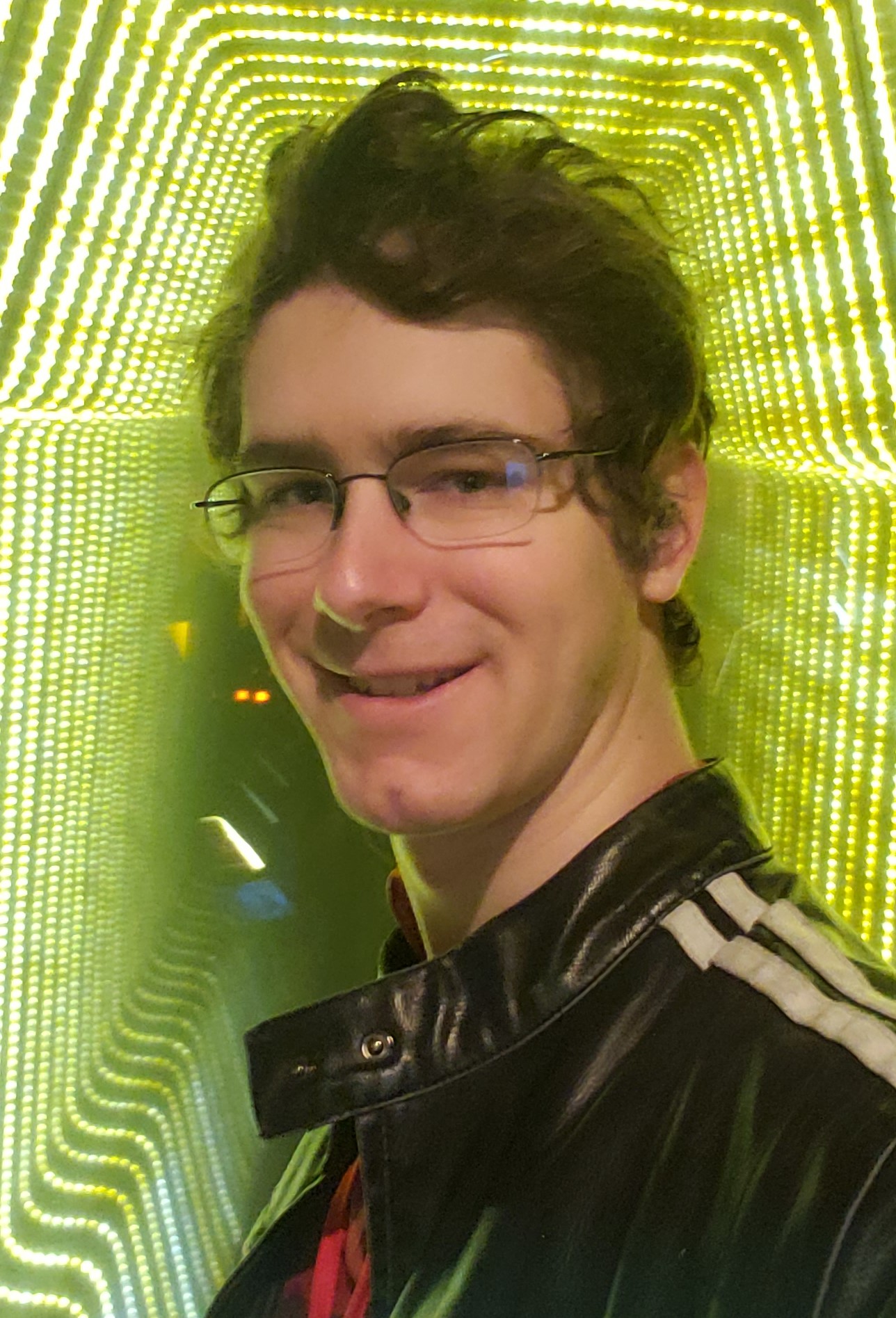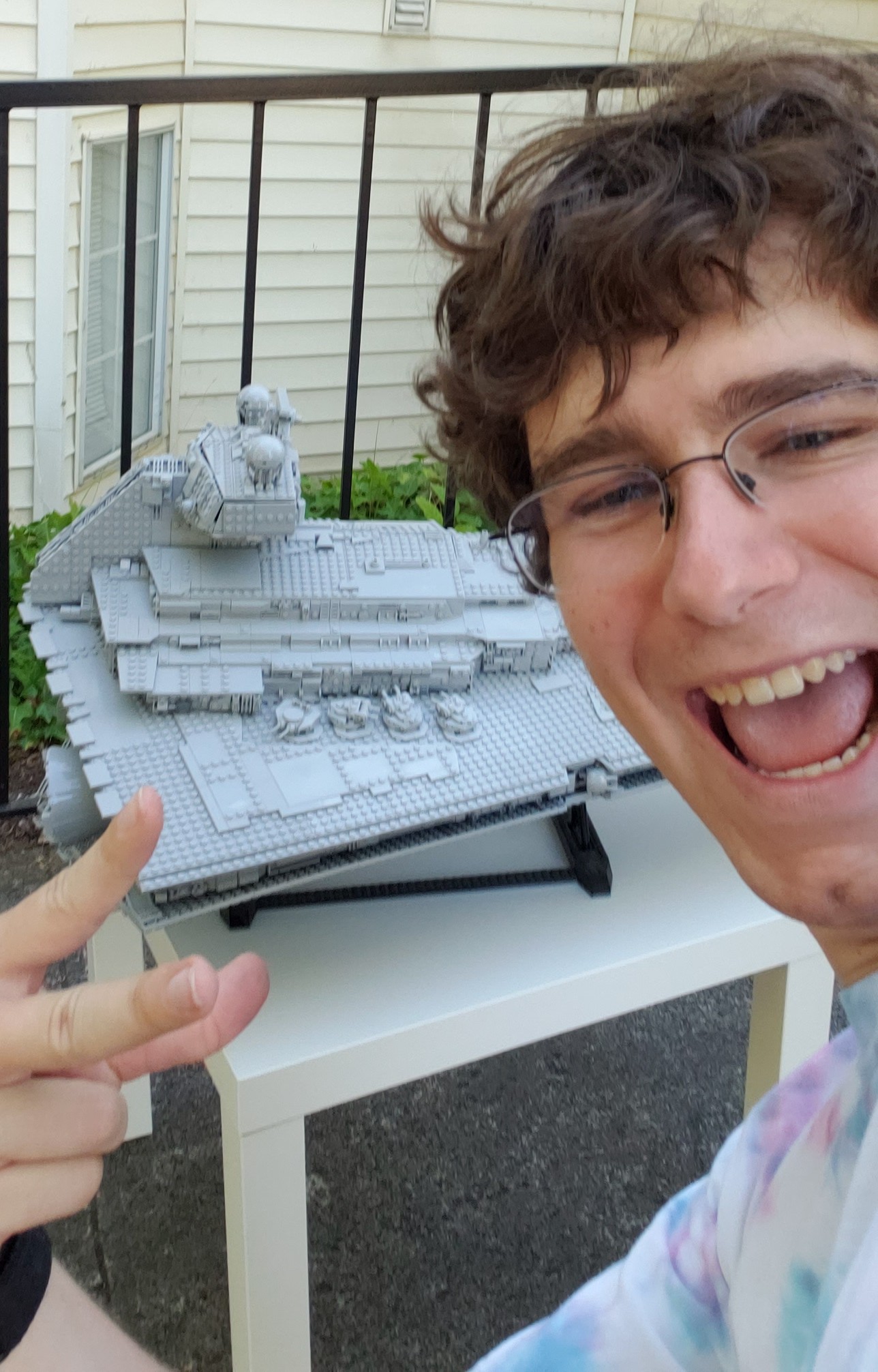
Hello! My name is Keaton Sullivan. I'm a generalist game developer.
"Jack of all trades, master of none is often times better than a master of one."
Those are the words I live by. Mastery implies I have nothing left to learn, and when it comes to game development there will always be a new frontier for me to explore. Wether it's VR, tabletop RPGs, or rhythm games, I love to try every kind of expirience this medium has to offer, and I love making them even more. Gun to my head, I'd say I specialize in Technical Design and Gameplay Programming, but that feels like being asked to pick a favorite child. Having a wide breadth of knowledge and curiosity grants me flexibility when working on solo projects, and helps me communicate on larger multidisciplinary teams.
My journey in game development started on my dad's lap playing Starcraft on his work laptop. I wasn't good enough to beat the CPU in skirmish mode, they'd always rush me or I'd run out of minerals. He showed me this cool program called the "Campaign Editor" that allowed me to wall in the enemy's starting base and give myself all the resources I'd need. From that moment, anything seemed possible, videogames weren't just some magical artifact bestowed uppon us, but something I could actually create and control. I was fascinated not only by the power to decide what happens, but also the mechanics of how these rules were written. I remember asking my dad how every part of Jedi Knight 2 worked: How do the storm troopers know how to move around the map? How does pressing W make me move forward and S make me move back? What if I could press K to make all the enemies explode? That last idea wasn't that great, but you have to cut me some slack, I was only 7.
Whether it was custom maps in Halo Forge mode or Minecraft command blocks, I've been developing games in one form or another since before I even attempted to make a career out of it. In 2021 I enrolled at DigiPen Institute of Technology, and in 2025 I graduated with a Bachelors of Science in Computer Science and Game Design.
My approach to game development is guided by these core principals
- Ideas are only as cool as your ability to impliment them
- Your code needs to be readable to your teammates first
- Always keep the end user in mind
- Design the best expirience for the player, don't make them do chores
- Give your tools the functionality your team actually needs
- It's never too early to ask for help, it's never too late to scrap something that doesn't work
- Feedback and criticism can only make you stronger
- A team is only as strong as it's ability to work together.

I'm used to working alone and staying motivated on my own creative projects, but working collaboratively is what I strive for. There's nothing like bouncing ideas off of a fellow creative or slowly deconstructing a problem with a team of engineers. Building a strong team of creatives all bringing their best to a project makes the journey just as sweet as the destination.
When I'm not making games, I'm making art, writing, or singing in the shower. I love taking my bike out for long miles-long trips with a podcast or audio book. I don't know if I'll have enough time in one life to see all of my ideas realized, but I'm sure going to try.
.jpg)